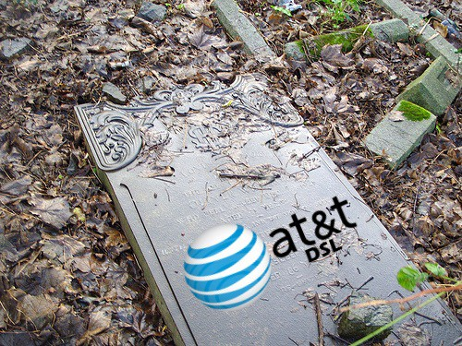 Image Credit: Stop the Cap
Image Credit: Stop the Cap
In September 2020, AT&T circulated an internal document highlighting that it would stop accepting Digital Subscriber Line (“DSL”) orders on October 1st. As of November 2020, AT&T has not committed to replacing its DSL service with a wireline connection of equal or superior quality outside of the areas with fiber networks. This would essentially cut-off thousands of consumers, leaving them without a fixed broadband alternative. Others will have had to cope with unreliable service throughout the pandemic.
On October 30, 2020, Next Century Cities joined Broadband Connects America (BCA) allies in a letter to House and Senate leadership. The letter urges members of Congress to ensure that no company can retire telecommunications or broadband technology without ensuring an alternative of equal or better quality is available to all customers in its service area. The letter highlighted the following points.
- AT&T’s shutoffs will disproportionately impact rural and low-income communities who often subscribe to DSL services out of necessity.
- Allowing AT&T to continue on this path will set a dangerous precedent that may allow other providers to retire DSL offerings without ensuring that vulnerable customers are able to stay connected.
- The FCC has little authority to regulate broadband. Congress must step in to ensure providers do not retire technologies unless they have a new offering of equal or better quality available as a replacement.
- Congress must work with the Federal Communications Commission to ensure that federal funds are put towards building networks that can provide broadband speeds across the nation. We can no longer allow federal funds to support the creation of networks that are obsolete from their inception.
Disruptions in service can have serious consequences. As the COVID-19 pandemic continues to force communities to work and learn from home, fixed broadband allows residents to access information, work from home, comply with remote learning mandates, and obtain healthcare. Accordingly, providers that turn off service to communities have a duty of care to ensure that an accessible, reliable, and affordable substitute exists.
Read BCA’s letter here.
